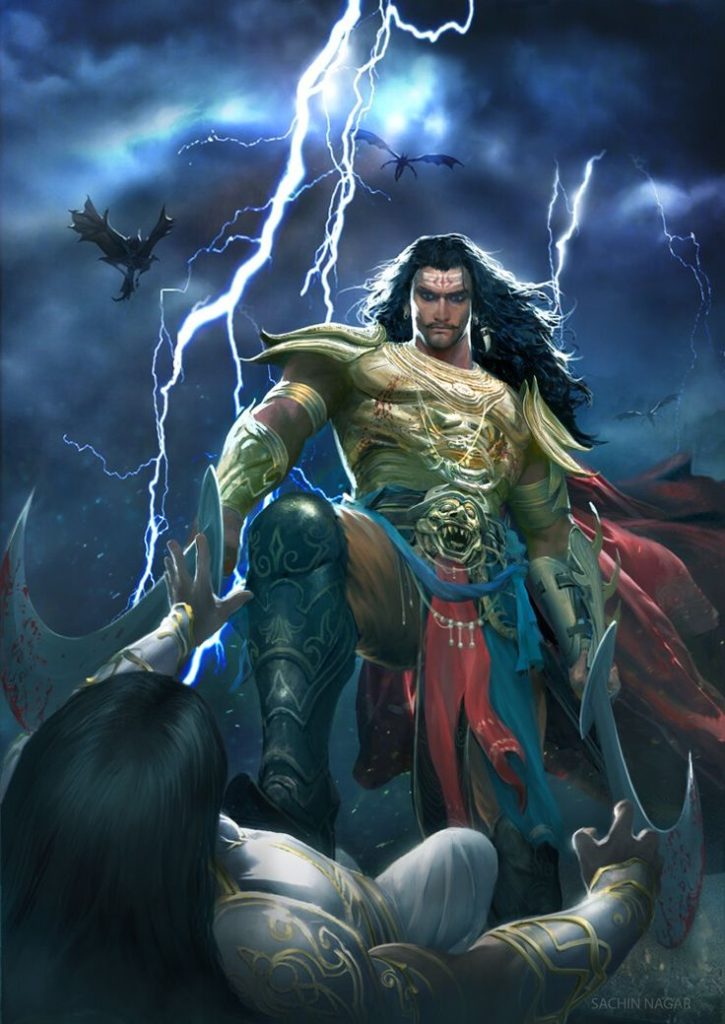In the vast tapestry of Hindu mythology, few characters fascinate the fiction incredibly, like Ashwathama. Known for his enigmatic presence in the Mahabharata, Ashwathama’s story is a combination of myth and lore, wrapped in mystery and intrigue.
Ashwathama: The Son of Drona, Friend of Kauravas
Ashwathama was the son of Rishi Dronacharya, the revered Guru (teacher) who trained the Pandavas, Kauravas, and Kripi in the art of warfare. His name is derived from the peepal tree (‘Ashwattha’ in Sanskrit) under which he was born.
He was an exceptional student, mastering archery and wielding celestial weapons with significant skill. Due to his shared education with the Kaurava princes, Ashwathama developed a deep friendship with them, particularly Duryodhan.
His Wrathful Attack
The climactic Kurukshetra War saw Ashwathama fighting valiantly alongside the Kauravas. Witnessing the death of his friends and his father, Dronacharya, Ashwathama was engulfed by rage. He released his most powerful weapon, the “Narayanastra,” on the remaining Pandava army. However, this act was a violation of the weapon’s code of conduct, as it couldn’t be used against unarmed soldiers.
The Curse of Immortality
One of the most fascinating aspects of Ashwathama’s story is his curse of immortality. Lord Krishna, the divine charioteer of Arjun, intervened and stopped the Narayanastra. Ashwathama, blinded by fury, mistakenly killed the Pandavas’ sons, who were unarmed and sleeping.
This heinous act outraged the Pandavas, particularly Draupadi, who demanded punishment. Krishna, recognizing the warrior’s potential for good, cursed Ashwathama with immortality. He was condemned to roam the earth for eternity, burdened by his sins. As per legends, he still has an existence filled with suffering.
Ashwathama’s tale resonates through the ages. It’s a cautionary reminder of the destructive power of uncontrolled anger and the enduring burden of guilt. His character embodies the complexities of human nature and the eternal struggle between good and evil.
Feature Image Credit: Pinterest.
